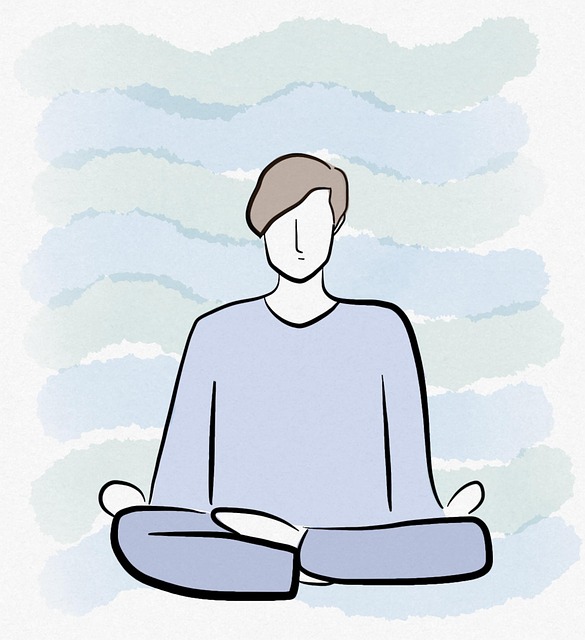Ecotherapy, a nature-based approach to mental health psychotherapy, leverages outdoor activities and natural landscapes to reduce stress, anxiety, and depression while fostering mindfulness and emotional regulation. This holistic method includes various techniques like hiking, gardening, and nature-based art therapy, offering calming environments that enhance well-being. Ecotherapy gains popularity for its innovative ways to complement traditional therapy, with research showing improved mood, decreased stress, and heightened cognitive function in natural settings. Overcoming accessibility barriers through creative solutions like virtual reality ensures ecotherapy is inclusive, and the growing focus on nature-based approaches promises a transformative future for mental health treatment.
“Unleash the healing power of nature with ecotherapy—a groundbreaking approach that integrates psychological well-being with our natural environment. This comprehensive guide explores how connecting with nature can revolutionize mental health treatments, offering a refreshing perspective on traditional psychotherapy.
From understanding the core principles to discovering accessible techniques, we delve into the benefits and future potential of nature-based practices. Discover how ecotherapy fosters resilience, reduces stress, and enhances overall mental wellness.”
Understanding Ecotherapy: A Nature-Based Mental Health Approach

Ecotherapy, a nature-based approach to mental health psychotherapy, is gaining recognition for its ability to foster well-being and healing. At its core, ecotherapy leverages the therapeutic benefits of spending time in natural environments, promoting a deeper connection with the outdoors as a means to improve mental health. This holistic treatment method recognizes the innate human desire to be in nature and uses it as a powerful tool to address various psychological concerns.
By incorporating activities such as hiking, gardening, or simply sitting in quiet natural spaces, ecotherapy offers a unique and effective way to combat stress, anxiety, and depression. The calming effects of natural landscapes and the sense of tranquility they offer can significantly reduce symptoms associated with mental health disorders. This approach not only provides a change of scenery from traditional therapy settings but also encourages individuals to engage their senses, fostering a deeper state of relaxation and mindfulness.
The Benefits of Connecting with Nature for Psychological Well-being

Connecting with nature has been shown to have profound effects on our psychological well-being, offering a unique and natural form of therapy known as ecotherapy. Spending time outdoors allows individuals to detach from the constant demands and stressors of daily life, providing an opportunity for mental reset. Research suggests that engaging in nature-based activities can reduce symptoms of anxiety and depression, improve mood, and enhance overall mental health. The calming atmosphere and beauty of natural environments have a restorative effect on our minds, promoting relaxation and reducing stress levels.
Through ecotherapy, individuals can benefit from the therapeutic power of nature, encouraging mindfulness and a sense of grounding. Activities such as hiking, gardening, or simply sitting in a park can foster a deeper connection with oneself and the environment, leading to improved self-awareness and emotional regulation. This natural approach to psychotherapy has gained popularity due to its accessibility and ability to offer a peaceful, holistic method of supporting mental health.
Techniques and Activities in Ecotherapeutic Practices

Ecotherapy incorporates a range of techniques and activities that harness nature’s therapeutic benefits, offering innovative approaches to enhancing mental health and psychotherapy. These practices include mindfulness walks, where individuals focus on sensory experiences during a walk in nature, encouraging present-moment awareness and relaxation. Another popular method is eco-psychotherapy, which involves exploring one’s emotional connection to the natural world through conversation and reflection, helping clients develop a deeper understanding of their feelings and thoughts.
Nature-based art therapy is another powerful tool, allowing individuals to express themselves creatively using natural materials like leaves, stones, and twigs, fostering self-discovery and emotional release. Outdoor physical activities, such as gardening or forest bathing (shinrin-yoku), promote not only movement and connection with nature but also serve as metaphors for personal growth and resilience. These ecotherapeutic techniques provide alternative ways to support mental well-being by reconnecting people with the healing power of nature.
Incorporating Nature into Traditional Psychotherapy Sessions

Incorporating nature into traditional psychotherapy sessions offers a unique and increasingly popular approach to enhancing mental health treatments. This concept, often referred to as ecotherapy or nature-based therapy, leverages the healing power of natural environments to complement conventional talk therapy. By bringing the outdoors indoors—literally or metaphorically—therapists can create a more engaging and effective therapeutic space. Research suggests that being in nature or even just viewing natural scenes during sessions can reduce stress, improve mood, and enhance cognitive function, thereby boosting the overall mental health benefits of psychotherapy.
This integration often involves using elements like plants, water features, and natural light to create a calming atmosphere. Therapists might also incorporate activities such as walking in parks, gardening, or simply observing and discussing natural phenomena during sessions. These nature-based approaches not only enrich the therapeutic experience but also encourage clients to develop a deeper connection with the environment, fostering a sense of grounding and perspective that can be transferred to their daily lives.
Overcoming Barriers: Making Ecotherapy Accessible to All

Overcoming barriers is essential to make ecotherapy and nature-based approaches accessible to all, especially those struggling with mental health issues. One significant challenge lies in reaching individuals who may face physical limitations or live in urban areas with limited green spaces. Adapting these therapies for diverse populations requires creativity and collaboration. For instance, incorporating virtual reality simulations of natural environments can offer a solution for those unable to physically access them.
Additionally, affordability and cultural sensitivity are crucial aspects. Making ecotherapy affordable involves considering sliding scale fees, community partnerships, and funding opportunities. Cultural sensitivity is paramount to ensuring these approaches resonate with diverse communities. Incorporating traditional knowledge and practices from various cultures into ecotherapy can foster inclusivity and make it more relevant and accessible to everyone, enhancing its effectiveness in addressing mental health concerns through a unique, naturalistic lens.
Future Prospects and Research in Nature-Based Mental Health Treatments

The future of mental health treatment looks promising with a growing emphasis on nature-based approaches and ecotherapy. Research suggests that connecting individuals with natural environments can significantly enhance traditional psychotherapy methods, offering a holistic healing experience. As the demand for accessible and effective mental wellness solutions increases, further exploration is needed to optimize these interventions. Scientists are investigating various techniques, such as green exercise, nature-based stress reduction programs, and wilderness therapy, to understand their long-term benefits and impact on different demographics.
With technological advancements, virtual reality and augmented reality could soon provide immersive nature experiences for those unable to access outdoor spaces. This innovative use of technology in mental health treatment has the potential to reach a wide audience, offering an accessible and engaging way to connect with nature. As research continues to uncover the profound effects of nature on our well-being, we can anticipate more integrated and nature-focused psychotherapy practices becoming mainstream, revolutionizing the way we approach mental health care.
